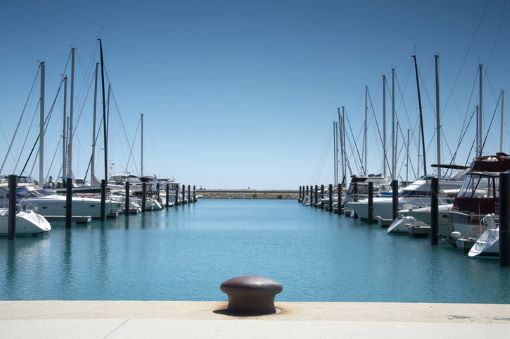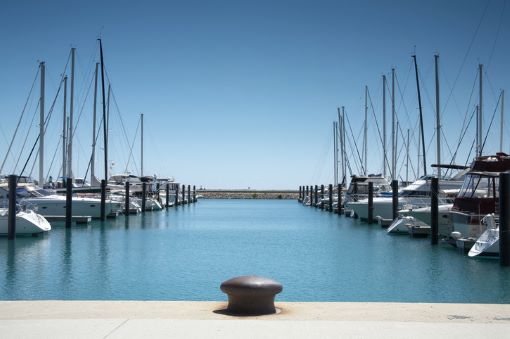
Self-Docking Boats: Our Guide to This Emerging Technology

Boating is constantly progressing, and self-docking boats are the newest development to start making a splash. These advanced vessels make your time on the water even more pleasurable by automating the docking process. This is an endeavor that can be difficult or nerve-wracking for many boaters.
In this guide, we’ll cover everything you need to know about self-docking boats, such as how they work, their pros and cons, costs, and more.
What are Self-Docking Boats?
Usually, people rely on learning how to dock a boat manually. In comparison, self-docking boats are cutting-edge vessels with technology that allows them to effortlessly dock at a self-adjusting boat dock.
This revolutionary feature relies on sensors, cameras, and GPS technology to guide the boat safely and precisely into its docking spot.
How Do Self-Docking Boats Work?
Understanding the mechanics of self-docking boats is essential to appreciate how they work. Here’s a quick breakdown of the three elements that come together:
Sensors and Cameras:
Self-docking boats have sensors and cameras that monitor the boat’s surrounding environment. These detect anything nearby, such as other vessels or obstacles. The self-adjusting dock will also be detected, guaranteeing a secure and precise docking process.
GPS Technology
The vessel’s onboard GPS talks to the self-adjusting boat dock, sharing data regarding speed, direction, and position. This information assists in working out the best approach to docking.
Docking Algorithms
Self-docking boats use sophisticated algorithms to analyze data from sensors, cameras, and GPS. This allows them to autonomously adjust their velocity, heading, and position for optimal alignment with the self-adjusting dock – completing an effortless docking procedure.
The Pros and Cons of Self-Docking Boats
Like any technology, self-docking boats have their advantages and disadvantages:
Pros:
1. Stress-Free Docking
With the help of self-docking boats, docking can be a breeze! Thanks to these revolutionary vessels and their accompanying self-adjusting boat docks, you can easily dock at your next port.
2. Increased Safety
By utilizing emerging technology, self-docking boats guarantee passengers a secure and serene sailing experience. This can help you avoid collisions or other disruptions during docking.
3. Improved Efficiency
Thanks to self-docking boats, boaters can now spend more time on the water and less worrying about docking their vessels. With these innovative boats, you can considerably reduce your mooring time for a stress-free boating experience.
Cons:
1. Cost
One of the major drawbacks to self-docking boats is their substantial price tag. This is mainly due to the expensive technology that goes into constructing these vessels, resulting in a steeper total cost.
2. Maintenance
The high-tech features in self-docking boats may necessitate more maintenance than traditional vessels. This could potentially result in costlier ownership costs over a longer period.
3. Limited Availability
Although self-docking boats are gradually becoming more popular, they still aren’t widely available. Moreover, not all marinas have the necessary equipment to support these vessels. Due to this, finding suitable docking locations with your self-docking boat may be difficult.
How to Choose the Best Marina for Your Boat
Price Points and Options for Self-Docking Boats
The cost of a self-docking boat can be quite high, depending on its features and size. Smaller versions may range from $50,000 to $500,000 for luxury models.
Researching the different options thoroughly before settling on the right boat for your budget and requirements is vital. Apart from buying a brand-new vessel, there are other avenues that you can explore if you’re interested in this technology.
Retrofitting
Retrofitting with self-docking technology is a viable option for boat owners wanting to upgrade their current vessel. However, it is essential to hire an experienced professional to correctly fit the system and ensure its compatible with the boat.
Boat Sharing Services
With the growing trend of self-docking boats, boat-sharing services may start offering them as part of their fleets. This could be a great way to see what self-docking is like before buying a new boat.
Future Developments in Self-Docking Boats
The technology behind self-docking boats is continually evolving, and we can expect further advancements in the coming years. Some potential developments include:
Increased Automation
The potential applications of advanced automation technology in self-docking boats could span various tasks, from navigation and vessel maintenance to the automated docking process. This could dramatically reduce the effort typically needed to operate a vessel, creating a more seamless boating experience.
Enhanced Docking Infrastructure
As self-docking boats become more popular in the future, marinas and boat docks must invest in advanced docking technologies that enable these vessels to dock autonomously. This could include larger investments in motorized docks as well as more accessible equipment for manual adjustments.
Integration with Smart Home Systems
In the future, self-docking boats may be integrated with existing smart home systems. This would allow for greater control over the docking process and other security features using just one app. With this increased convenience, smart home integration could help make self-docking even more appealing.
Conclusion
Self-docking boats are changing the landscape of the boating industry, providing an effective, stress-free approach to docking. By learning more about them, you can make an informed choice about whether one is right for you in the future.
From discoverboating.com
Request More Info
"*" indicates required fields
Share this with





